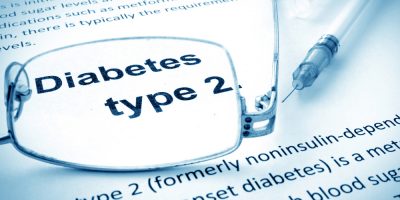- Home
- Editorial
- News
- Practice Guidelines
- Anesthesiology Guidelines
- Cancer Guidelines
- Cardiac Sciences Guidelines
- Critical Care Guidelines
- Dentistry Guidelines
- Dermatology Guidelines
- Diabetes and Endo Guidelines
- Diagnostics Guidelines
- ENT Guidelines
- Featured Practice Guidelines
- Gastroenterology Guidelines
- Geriatrics Guidelines
- Medicine Guidelines
- Nephrology Guidelines
- Neurosciences Guidelines
- Obs and Gynae Guidelines
- Ophthalmology Guidelines
- Orthopaedics Guidelines
- Paediatrics Guidelines
- Psychiatry Guidelines
- Pulmonology Guidelines
- Radiology Guidelines
- Surgery Guidelines
- Urology Guidelines
Lesbian, gay ,bisexual youth at higher risk of Diabetes , finds study

In a first of its kind study, lesbian, gay, bisexual and questioning youths were found more likely to develop Type 2 diabetes, according to a study recently published in the journal Pediatric Diabetes. Further, the study identified non-heterosexual teens to be obese and engage in the less physical activity and more sedentary activities than heterosexual youth.
The study examined the association between minority stress and health behaviour which contributed to the risk of poor physical health among LGBQ youth.
"Lesbian, gay, bisexual and questioning youth may not only be at risk for worse mental health but also worse physical health outcomes compared to heterosexual youth," said lead study author Lauren Beach, a postdoctoral research fellow at Northwestern University's Institute for Sexual and Gender Minority Health and Wellbeing.
The investigators extracted data from 350,673 United States high-school students, aged between 14 and 18 years old to detect disparities in diabetes risk factors by sexual orientation. Overall, 88.4% identified as heterosexual, 2.1% as gay or lesbian, 5.7% as bisexual, and 3.7% as unsure.
The study found that on average, sexual minority and questioning students were less likely to engage in physical activity than heterosexual students. They reported approximately one less day per week of physical activity and were 38 to 53 percent less likely to meet physical activity guidelines than heterosexual students. Further, the number of hours of sedentary activity among bisexual and questioning students was higher than heterosexual students (an average of 30 minutes more per school day than heterosexual counterparts). The study also found that lesbian, bisexual and questioning female students were 1.55 to 2.07 times more likely to be obese than heterosexual female students.
According to the author, obesity and sedentary activity may be higher in this population because lesbian, gay, bisexual and questioning youth are subjected to minority stress. Additionally, cultural and environmental factors may also play an important role.
Read Also: Metformin and insulin ineffective in children with type 2 diabetes
Many of these youth might be taking part in sedentary activities - like playing video games - to escape the daily stress tied to being lesbian, gay, bisexual or questioning," Beach said. "Our findings show that minority stress actually has a very broad-ranging and physical impact."
"Previous research has shown that body image and standards of beauty might be different among LGBQ compared to heterosexual populations," Beach said. "We know very little about the physical environments of LGBQ youth. Are these youth less likely to live in areas that are safe for them to be active? We just don't know."
The authors suggested that a holistic approach by teachers, parents, and physicians should create a supportive environment to ensure that these youth have the tools they need to stay healthy. Moreover, family support and identity affirmation developing positive feelings and a strong attachment to a group have been consistently linked to better health among LGBQ youth.
For reference log on to http://dx.doi.org/10.1111/pedi.12720

Disclaimer: This site is primarily intended for healthcare professionals. Any content/information on this website does not replace the advice of medical and/or health professionals and should not be construed as medical/diagnostic advice/endorsement or prescription. Use of this site is subject to our terms of use, privacy policy, advertisement policy. © 2020 Minerva Medical Treatment Pvt Ltd